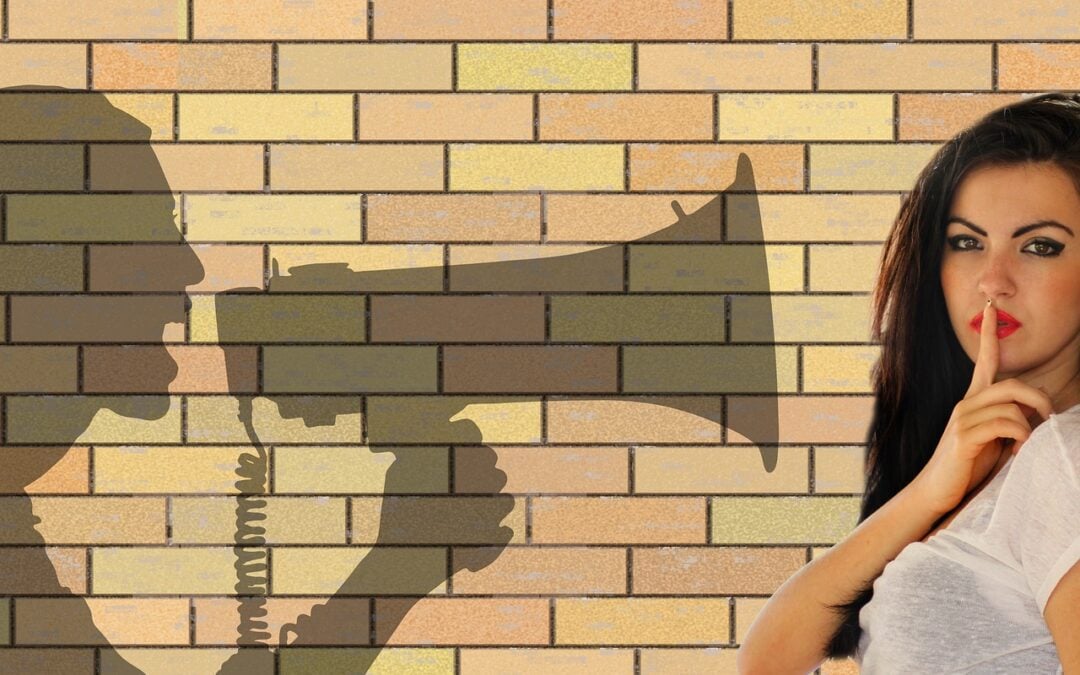The Danger of Cancel Culture and its Impact on Freedom of Speech
Our Stratford Polygraph Examiner took a look recently at the alarming rise of cancel culture and its impact on freedom of speech.
Cancel culture is a practice of withdrawing support for companies, public figures or celebrities because they have done something considered offensive. In our society it has always been common practice to hold people accountable when they air questionable or controversial opinions. However, cancel culture takes this to a whole new level.
The cancel culture technique has negatively impacted on freedom of speech in its refusal to acknowledge contrary views. This type of ‘group think’ assumes that being accused is the same as being guilty. Banishing unpopular opinions puts society on the road to ideological authoritarianism. It endangers democracy, which upsets balance while rejecting diversity of views.
In the United States’ free speech is a political concept because it is written into the constitution. American freedom of speech includes the legal right to criticise your government and protects you from the government telling you what you can and cannot do.
Freedom of speech is sacrosanct in the US and cannot be regulated by the government. However, the law does not protect you from public pressure; it protects you from the government.
It discourages dialogue
Cancel culture discourages dialogue and promotes a ruthless community that dwells on intimidation. If a person says or does something considered offensive the ‘group’ exacts vigilante justice by attempting to isolate them. The target is deemed evil and must be publicly humiliated and shamed. In years gone by we used to put people in the stocks and hurl rubbish at them. Some might think this is infinitely preferable to today’s cruel and unforgiving baying mobs.
If a particular business perhaps doesn’t support the group’s virtue signaling cause, then that company must be boycotted and put out of business. This is not about justice; it is more related to satisfying often misguided wrath. Calls to boycott will often come before a company has had an opportunity to defend itself.
Career and reputation loss
A recent example of how cancel culture can ruin careers and damage reputations is the case of Lawrence Fox. He made the enormous mistake of rebelling against the racist and white privilege narrative on BBC Question Time back in January. He disagreed with an audience member that the demise of Meghan Markle had anything to do with racism. The audience member then accused him of speaking from a position of white privilege. Watch what happened in the video below:
Best known for his role as DS James Hathaway in the popular drama series ‘Lewis’, Lawrence believes it is highly possible he will never work again in acting. For daring to say that the UK is the “most tolerant, lovely country in Europe”, and suggesting that throwing the “race card” at everyone was “boring”, Lawrence Fox has been effectively ‘cancelled’.
After being cancelled, many people lose their careers, reputations or job opportunities.
One of the significant issues with cancel culture is how it taps into the feeling of shame, which does not help individuals to learn or make any positive changes. According to Brene Brown, a researcher on vulnerability, shame, and empathy, scandal can’t be productive in a shift in behaviour.
If people have to worry about the consequences of what they say, ideas won’t be thoroughly examined. Cancelling denies people the opportunity to grow and change their opinions as they mature or gain more life experience.
Privacy violation
Privacy violation is one of the significant issues of online cancelling. Those being cancelled may be denied the right to privacy and be subjected to defamation.
Cancel culture started as shaming on social media, where people would say offensive things about others. However, its growth goes hand in hand with the deterioration of freedom of speech. It has grown exponentially and now not only affects celebrities, politicians and brands but also ordinary people. As a result, people are scared to express themselves and stay silent to protect their lives.
We have seen it move from its normal platform of social media into the streets recently. Many of those who didn’t clap for the NHS during the lockdown were shamed and ostracised by their neighbours. ‘Doxing’ them on social media, the ‘morally superior woke brigade’ posted names and addresses of the ‘offenders’.
West Midlands Polygraph Services
As a highly qualified, forensic psychologist and Stratford polygraph examiner my job entails having excellent communication skills. I didn’t believe it was right to only clap for the NHS considering there were so many services operating during the lockdown. Bus drivers, fire fighters, police, the military, supermarkets and local food shops all made an enormous contribution to helping us get through it, among many others.
As I watched my neighbours applauding a state run organisation, a vision of communism crossed my mind, more especially because so many people were shamed for not doing it.
Lie Detector Test UK provides polygraph services throughout the West Midlands as well as nationwide. We firmly believe that ‘cancel culture’ must be cancelled since if it wins, our freedom of speech will be lost for ever.


